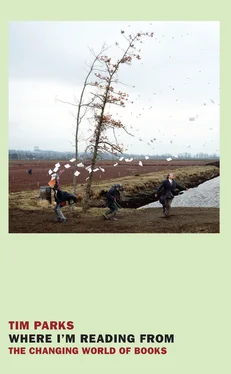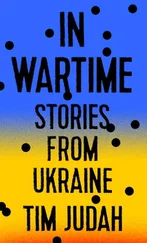My problem with the grand traditional novel—or rather traditional narrative in general, short stories included—is the vision of character, the constant reinforcement of a fictional selfhood that accumulates meaning through suffering and the overcoming of suffering. At once a palace built of words and a trajectory propelled by syntax, the self connects effortlessly with the past and launches bravely into the future. Challenged, perhaps thwarted by circumstance, it nevertheless survives, with its harvest of bittersweet consolation, and newly acquired knowledge.
I’m being reductive. The variety of stories told in the novel is indeed remarkable, but the tendency to reinforce in the reader the habit of projecting his or her life as a meaningful story, a narrative that will very likely become a trap, leading to inevitable disappointment followed by the much-prized (and I suspect overrated) wisdom of maturity, is nigh on universal. Likewise, and intrinsic to this approach, is the invitation to shift our attention away from the moment, away from any real savoring of present experience, toward the past that brought us to this point and the future that will likely result. The present is allowed to have significance only in so far as it constitutes a position in a story line. Intellect, analysis, and calculation are privileged over sense and immediate perception; the whole mind is pushed toward the unceasing construction of meaning, of narrative intelligibility, of underlying structure, without which life is assumed to be unimaginable or unbearable.
It is a way of seeing that is bound to produce states of profound disappointment for those who subscribe to it. “Munro brilliantly tracks the lives of those who did not achieve what they expected to,” exclaimed one British paper after the 2013 Nobel Prize was announced. It hardly seems a cause for congratulation if the Western mindset is constructed around first projecting extravagant ambitions, the infamous “dream,” and then relying on authors like Alice Munro to offer consolation when it isn’t achieved, or alternatively seeks to enjoy success vicariously by reading celebrity biographies, another increasingly popular genre. In this regard, one can even see the consolations of literature as one of the forces sustaining a destructive cultural pattern. We are so pleased with our ability to describe and savor our unhappiness, it hardly seems important to find a different way of going about things.
What I don’t understand is whether this kind of narrative strategy is a natural consequence of choosing the novel form, or simply the default setting of fiction in our culture. Beckett famously felt that the problems of literary fiction were inherent in language itself, in its overconfident, unquestioning forward motion, and that the only response possible was, as it were, to write against language , to expose it, have it trip itself up. In a much-quoted letter written in 1937, he even imagined a time when language itself might be dissolved or eliminated:
It is indeed becoming more and more difficult, even senseless, for me to write an official English. And more and more my own language appears to me like a veil that must be torn apart in order to get at the things (or the Nothingness) behind it. Grammar and Style. To me they seem to have become as irrelevant as a Victorian bathing suit or the imperturbability of a true gentleman. A mask. Let us hope the time will come . . . when language is most efficiently used where it is being most efficiently misused. As we cannot eliminate language all at once, we should at least leave nothing undone that might contribute to its falling into disrepute. To bore one hole after another in it, until what lurks behind it—be it something or nothing—begins to seep through; I cannot imagine a higher goal for a writer today.
A few years ago, Colm Tóibín—at present one of the finest masters of the traditional narrative form, the dying fall, the sad accumulation of pathos and wisdom—observed that Beckett himself was second to none when it came to manipulating grammar and style, as if that constituted a contradiction. Not at all: the problem lies exactly in feeling that one’s skills are only suitable for a project that no longer makes sense. So many writers are now able to produce passable imitations of our much-celebrated nineteenth-century novels (again The Luminaries is a case in point). Their very facility becomes an obstacle to exploring some more satisfactory form.
So, is there a way forward in words that could express a quite different vision of self and narrative? In my own small way I tried to do this in my recent novel Sex is Forbidden , where a young woman in a Buddhist meditation center is seeking to move away from mental habits—ambition, regret, unhappy love—which have entrapped and humiliated her. I don’t think I succeeded. Buddhism, as a set of teachings and practices that invite the dissipation of the “fiction” of self and a quite different idea of social involvement and personal trajectory, became in the end simply a stark contrast that exposed the extent to which the girl was trapped in the Western obsession of creating one’s own successful life story. Most readers, I’m sure, were eager for her to avoid the seductions of nirvana. More generally, the tale’s literary nature, its very presentation of itself as a novel—perhaps I just mean my own ambitions—inevitably dragged it back toward the old familiar ploys, the little climaxes, the obligatory ironies. True, one could set them up and then retreat from them, prepare and not deliver, encourage the reader to see how wearisomely novels do go in a certain direction. But the whole endeavor was like sailing against a strong wind: however determinedly you point to the open sea, you are constantly blown back on the familiar coast. When the moment comes to discuss the blurb with the publisher, you know that you haven’t done anything new.
To conclude: in 2011 I had occasion to visit an old university tutor, a rather severe and demanding professor, who nevertheless played a generous part in encouraging me to write. He read my first attempts at fiction and introduced me to writers who would later be important to me, most notably Henry Green. I had not seen him in thirty years. Long since retired, he was now restricted to a wheelchair and, with time on his hands, had been re-reading old favorites, all the great novels that had inspired a lifetime’s career in reading, writing, teaching. We talked about Faulkner, Fitzgerald, Hemingway, Henry Green, Elizabeth Bowen, Anthony Powell.
“How did they hold up?” I asked cheerfully.
“Not at all,” he told me. “They feel like completely empty performances. Like it wasn’t worth it at all.”
Coming out, it felt like I’d just been to a very challenging tutorial.
CAN PEOPLE CHANGE their lives? Can novelists change the kind of stories they write?
The two questions are not unrelated. I raise them after reading a long (thoughtful, generous) review of my own novel writing, which, nevertheless, seems perplexed by a shift in the content and credo of my recent work. Until a couple of years ago, the reviewer observes, Parks’s novels were remorseless in suggesting that we are who we are who we are, can’t change, character is destiny, family is destiny, habits of mind are destiny; the kind of job we do, the person we share our lives with, the ongoing stories we are involved in are all so much part of ourselves that any thought of changing them inevitably drags us toward madness and self-destruction.
The reviewer evidently admires the rigor of this position, and feels a little let down when in my nonfiction work Teach Us to Sit Still , then again in my recent novel Sex is Forbidden , there is some movement away from it. As if it might be a weakness to step back a little and wonder: Is all this determinism really true? Is this unhappy thing really necessary, and not just another burdensome piece of lumber I have become attached to? Do I really have to stay in this job, this marriage, this town, forever?
Читать дальше












